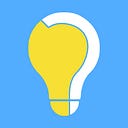Why reading textbooks, isn’t good enough for you?
Keywords : textbooks, quizzing, experiences, approach, learning, strategy, knowledge, memory, reading, ideas , learning techniques, study time, effective, information, coursework
The way most students study makes no sense.
The majority of students study by reading notes and textbooks, however research by psychologists shows this is a bad way to learn content, both in lab trials and of actual students in classes. Active learning techniques, such as using flashcards, diagramming, and quizzing yourself, are much more effective. Other techniques include spreading out study time and combining various topics.
Reading a book is merely one method of education. There are many additional ways to learn. Since the day we were born, we have all been learning. We all gain knowledge every day from our experiences, blunders, and occasionally from watching others. Reading a book merely provides us with theoretical ideas or some information (general knowledge). Then, we must either research the knowledge or use it in the real world. Then the process of learning from mistakes began.
- Don’t just read your notes
Survey results show that most students read their assignments and notes when they study. This is, according to the majority of students, their go-to tactic. However, a lot of studies indicate that this type of recurrent recycling of knowledge is not a particularly effective approach to learn or develop stronger memories.
If you’re someone who easily gets bored as well as distracted from writing long notes then you can join our Discord server, where you can meet with fellow students with whom you can study together, share notes and study material as well.
2. Ask yourself lots of questions
Instead, one effective strategy is to read once, then test yourself using the questions from the chapter’s back of the textbook or thinking up your own. Actually, retrieving such knowledge results in stronger learning and memory. Finding information is what results in more robust memory and learning. Even if you are unable to obtain it — when you answer a question incorrectly — it still provides you with a reliable diagnostic of your knowledge gaps, which indicates what you should review. Your study strategy will be more effective as a result.
And if you’re someone, who is constantly facing doubts regarding your Science subjects, be it Physics, Chemistry or Maths, DoubtConnect is here for you. Doubtconnect is a doubt solving platform which helps you with your daily doubt hassle.
3. Don’t cram
Many students “cram” — they wait till the very last second, then in one evening, they repeatedly regurgitate the material. However, studies demonstrate that this is bad for long-term memory. It might enable you to perform quite well on that test the following day, but you won’t retain as much material for the final, and the following year, when you need the knowledge for the subsequent level of coursework, it won’t be available.
If you’re someone who easily gets bored as well as distracted from writing long notes then you can join our Discord server, where you can meet with fellow students with whom you can study together, share notes and study material as well.
4. Ask yourself lots of questions
Instead, one effective strategy is to read once, then test yourself using the questions from the chapter’s back of the textbook or thinking up your own. Actually, retrieving such knowledge results in stronger learning and memory. Finding information is what results in more robust memory and learning. Even if you are unable to obtain it — when you answer a question incorrectly — it still provides you with a reliable diagnostic of your knowledge gaps, which indicates what you should review. Your study strategy will be more effective as a result.
And if you’re someone, who is constantly facing doubts regarding your Science subjects, be it Physics, Chemistry or Maths, DoubtConnect is here for you. Doubtconnect is a doubt solving platform which helps you with your daily doubt hassle.
5. Don’t cram
Many students “cram” — they wait till the very last second, then in one evening, they repeatedly regurgitate the material. However, studies demonstrate that this is bad for long-term memory. It might enable you to perform quite well on that test the following day, but you won’t retain as much material for the final, and the following year, when you need the knowledge for the subsequent level of coursework, it won’t be available.
With that at the end, just scanning books doesn’t create much of a difference but going for an extra mile surely does.
